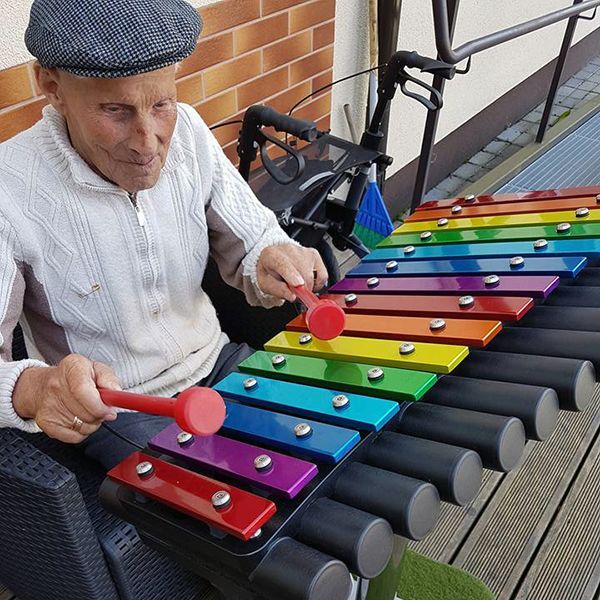
Let's Jam
Simply enter your name, email address, and click subscribe to get the latest product updates.
By clicking "Subscribe", you confirm that you have read and accepted our Terms and Conditions, Privacy Policy and Cookie Policy.
Originally starting as Empty Classroom Day, Outdoor Classroom Day is now a global campaign to celebrate and inspire outdoor learning and play. On this day, thousands of schools around the world take lessons outdoors and prioritize playtime, encouraging their students to enjoy just being outside, being with other children, and getting out in all kinds of weather.
The movement for outdoor learning is the brainchild of environmental educator Anna Portch, who started the project in 2012. The original aim was for every school in London to take one extra lesson outside on the same day of the year. At first, it attracted the attention of just a handful of schools in London, however by 2017, over 2.3 million children worldwide took part in upwards of 100 countries and more than 580,000 of those were in the UK and Ireland and 200,000 in Australia. Today, over 9.6 million children and more than 105,000 teachers, parents, and supporters have been involved around the world.
Teachers and schools are encouraged to be creative in using the day not only to enhance pupils’ learning experience but also to foster a connection to nature in an era when young people are spending more and more of their time indoors. A survey carried out by the day’s organizers found that 65% of primary schools globally give pupils less than one hour of playtime a day, despite the majority of teachers agreeing that outdoor playtime during the school day is critical for children to reach their full potential.
Classrooms have diversified during the Covid-19 pandemic with many teachers having to move lessons outside, but now a large number are realizing, or have been pleasantly reminded of the benefits this has on children’s education. This should be no surprise, for UK government organization, Natural England published findings from its Natural Connections Demonstration Project which ran from back in 2012-2016 showing that:
Time spent outside also increases social engagement and can improve mental health. Self-esteem can also receive a boost after time spent playing outdoors. Whatever the exact cause, getting outdoors will help you live happier and longer. Find time in your day to venture outside and take advantage of the health benefits of the outdoors - your body and mind will thank you for it.
Outdoor Classroom Day is not just about one day, we need to sustain outdoor play and learning all year round. Outdoor musical instruments in the school playground or local inclusive play park are an invitation for children to experience the outdoors in a new and fascinating way. Music motivates, enriches, touches, relaxes, and energizes so the combination of playing musical instruments in an outdoor setting can lead to very positive physical health benefits.
By combining both music and the ‘great outdoors’, Percussion Play believes its instruments can help create fun and laughter and help to facilitate learning. Outdoor musical instruments can support a child’s musical education and encourages both individual and group participation, particularly instruments such as the Duo, that can help encourage children with learning difficulties to play music together.